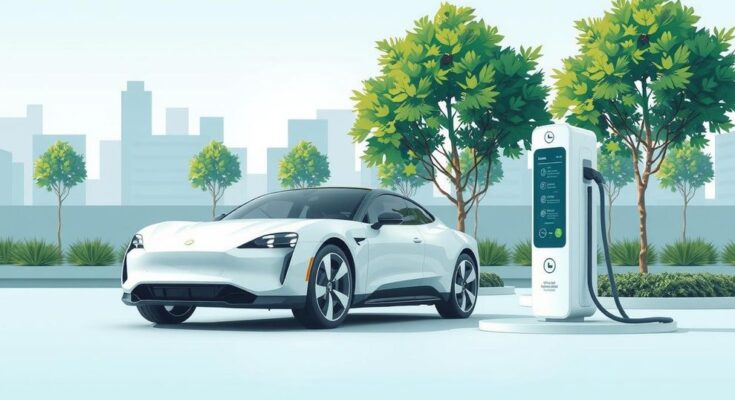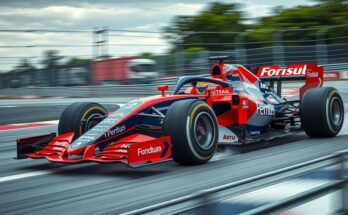BMW India has achieved a threefold increase in electric vehicle sales in Q1 2024, accounting for 17% of total sales, amidst general industry skepticism. Factors include consumer confidence issues and competitive dynamics in the premium segment, with BMW’s innovative launches and resilient performance reflecting a promising outlook despite global challenges.
In the first quarter of this year, BMW India reported a remarkable threefold increase in electric vehicle (EV) sales, contradicting prevailing skepticism about the rapid adoption of electric cars within the automotive industry. With a total of 646 EVs sold from January to March, BMW’s electric vehicles represented 17% of its overall sales of 3,914 cars, demonstrating a 7% improvement compared to the same period last year.
Vikram Pawah, the president and chief executive of BMW Group India, noted that unrealistic expectations regarding the transition to electric vehicles contributed to disappointment regarding their pace of adoption. Meanwhile, Tata Motors Ltd indicated a potential extension of traditional internal combustion engine platforms, reflecting concerns over slowdown in major EV markets like the US and Europe. Aston Martin similarly postponed the launch of its electric model until 2030.
Within the Indian market, electric vehicles are predominantly viewed as secondary vehicles, which has impeded their sales growth. Maruti Suzuki’s Partho Banerjee emphasized that until issues surrounding range, charging infrastructure, and post-sales services are addressed, consumer confidence in purchasing EVs will remain low. Despite a year-on-year increase of 20% in electric car sales, penetration remains limited at just 2.5%.
Pawah remains optimistic about the premium segment of electric vehicles, citing competition with brands such as Mercedes-Benz and Audi. He highlighted the introduction of the new BMW iX1 Long Wheelbase at a global auto expo, which garnered over 1,500 bookings. He also mentioned mounting interest in electric vehicles from urban centers and smaller cities, where attractive options are available.
The premium automotive market has shown resilience, with BMW’s sales reaching 15,721 units in India for the year, marking an 11% growth alongside the sale of 1,249 additional electric vehicles. However, uncertainties in the global automotive industry persist, particularly due to recent tariffs imposed by the US government on imported vehicles and parts, prompting firms to reassess their investment strategies. Analysts suggest many automotive manufacturers are shifting focus back to their core products and are cautiously navigating the evolving landscape of electric vehicle regulations and subsidies.
In summary, BMW India has experienced significant growth in electric vehicle sales, standing in contrast to broader industry skepticism. With continued optimism from leadership regarding the premium EV segment, the market still faces challenges surrounding consumer confidence and infrastructure. As the global automotive environment fluctuates under new tariff regulations, major manufacturers are pivoting their investment strategies while maintaining an eye on the future of electric mobility.
Original Source: www.livemint.com




